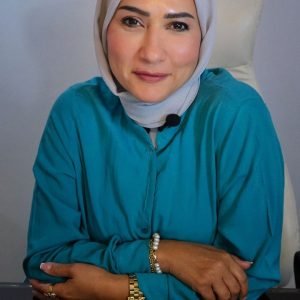In a landmark step that reflects Sharjah’s progressive social policies and its commitment to fostering inclusive family values, His Highness Sheikh Dr. Sultan bin Mohammed Al Qasimi, Supreme Council Member and Ruler of Sharjah, has approved a new form of leave for female government employees—dubbed “Care Leave.” This initiative is designed specifically to support working mothers whose children are born with disabilities or chronic illnesses, offering them the opportunity to provide the dedicated care their children need without jeopardizing their professional futures.
The announcement has been hailed across the UAE and wider region as a milestone in labor rights, gender inclusion, and family welfare policy. At its core, the Care Leave policy exemplifies a compassionate governance model that bridges the needs of a modern workforce with cultural values centered on family, care, and social responsibility.
A Humanitarian Vision Turned Policy
The introduction of Care Leave did not come overnight. It is the product of years of thoughtful research, dialogue, and advocacy. The policy was developed following a comprehensive two-year study led by NAMA Women Advancement Establishment, in collaboration with Sharjah City for Humanitarian Services. These institutions undertook the study to better understand the needs of working mothers in Sharjah—particularly those facing the emotional, physical, and logistical challenges of caring for children with serious health concerns.

The findings were eye-opening and confirmed what many families silently endure: that juggling a full-time job while providing medical or developmental care for a child can result in immense strain on mothers. The study recommended a unique type of leave that could offer these mothers peace of mind, financial stability, and the freedom to focus on caregiving during critical years of a child’s development.
Inspired by these findings, His Highness Sheikh Dr. Sultan bin Mohammed Al Qasimi endorsed the policy with swift compassion, aligning with his broader vision of social justice and equity within Sharjah’s governance.

Core Components of Care Leave
The policy is notable not just for its intentions but also for the specific mechanisms it establishes. Female employees working in Sharjah’s government sector who give birth to a child with a medical condition or disability requiring round-the-clock care will be entitled to a fully paid Care Leave for a full year. This leave kicks in immediately after the standard maternity leave ends.
One of the most progressive aspects of the policy is the provision for annual extensions. If the child’s condition necessitates ongoing care, mothers can extend their Care Leave for up to three consecutive years. These extensions will require a certified medical report and approval from the employee’s workplace authority, ensuring the leave system is used responsibly while preserving the wellbeing of the child and family.
Importantly, the time taken on Care Leave will be considered part of the employee’s total years of service, thereby protecting her seniority, retirement benefits, and professional standing. The leave will also be evaluated under existing performance management systems, offering a structure that maintains professional accountability without disregarding personal circumstances.
Flexibility, Compassion, and Oversight
To maintain the integrity of the program, several checks and balances have been incorporated. The leave may be terminated early if a medical assessment confirms that the child’s health condition has improved to a point where full-time care is no longer essential. If a leave period extends beyond three years, the matter is referred to the Higher Committee for Human Resources, which will evaluate it based on humanitarian grounds.
This structure ensures the policy is adaptable to real-life scenarios while safeguarding against misuse. It acknowledges the deeply personal and often unpredictable journey that comes with raising a child with complex needs.
Championing Women’s Empowerment
Her Highness Sheikha Jawaher bint Mohammed Al Qasimi, Chairperson of NAMA Women Advancement and wife of the Ruler of Sharjah, has been a passionate advocate for women’s rights and family welfare. Speaking about the launch of the Care Leave policy, Sheikha Jawaher emphasized that this initiative is a continuation of Sharjah’s broader mission to empower women through thoughtful, inclusive governance.
“This policy is more than a labor benefit; it is a reflection of who we are as a society,” she noted. “We value women not just as employees but as mothers, caregivers, and essential pillars of our families and communities. With Care Leave, we are telling women that they do not have to choose between their careers and their children.”
She further added that by investing in the wellbeing of working mothers, the emirate is indirectly investing in healthier, more stable families, stronger workplaces, and more resilient communities.
A Regional and Global Model
The Care Leave policy sets a new precedent in the GCC and possibly even globally. While many nations have policies supporting parental leave, few offer multi-year paid leave targeted specifically at mothers of children with disabilities or chronic illnesses. In doing so, Sharjah is establishing itself as a regional pioneer in labor reform and social inclusion.
This move also reinforces the UAE’s commitment to achieving the United Nations Sustainable Development Goals (SDGs), particularly Goal 5 (Gender Equality), Goal 3 (Good Health and Wellbeing), and Goal 8 (Decent Work and Economic Growth). As workplaces across the globe grapple with the need for more humane and flexible employment practices, Sharjah’s example offers a valuable roadmap.
Community and Institutional Support
Care Leave is expected to have far-reaching ripple effects. Institutions such as Sharjah City for Humanitarian Services have welcomed the policy, expressing optimism that it will encourage more open conversations about caregiving, mental health, and workplace inclusion.
Medical professionals, human rights organizations, and educational leaders have also praised the initiative. Pediatricians and therapists in Sharjah say that consistent parental involvement is often key to better medical outcomes in early childhood, especially in cases involving disabilities or chronic illnesses.
The policy is also expected to inspire HR departments in private and semi-governmental institutions to reevaluate their family support systems. Some corporations in Sharjah have already announced that they are studying how to adopt or mirror similar leave systems in their internal policies.
Future Prospects
The introduction of Care Leave may only be the beginning. According to insiders at NAMA and the Sharjah Executive Council, other supportive policies for working parents—such as subsidized therapy services, workplace nurseries, and flexible work hours—are also under review. These initiatives, if approved, would strengthen Sharjah’s position as a family-first emirate and a haven for progressive labor policies in the region.
Conclusion
Sharjah’s approval of the Care Leave policy for female government employees is a significant and heartfelt stride toward inclusive governance and family welfare. It recognizes the silent sacrifices of thousands of mothers, offers them the dignity of choice, and places child welfare at the center of labor policy.
With this pioneering move, Sharjah sends a clear message: when you support women, you support the entire society. Through Care Leave, the emirate is rewriting the rulebook on how governments can compassionately and effectively empower their citizens, one family at a time.
Do follow Uae stories for more Updates












